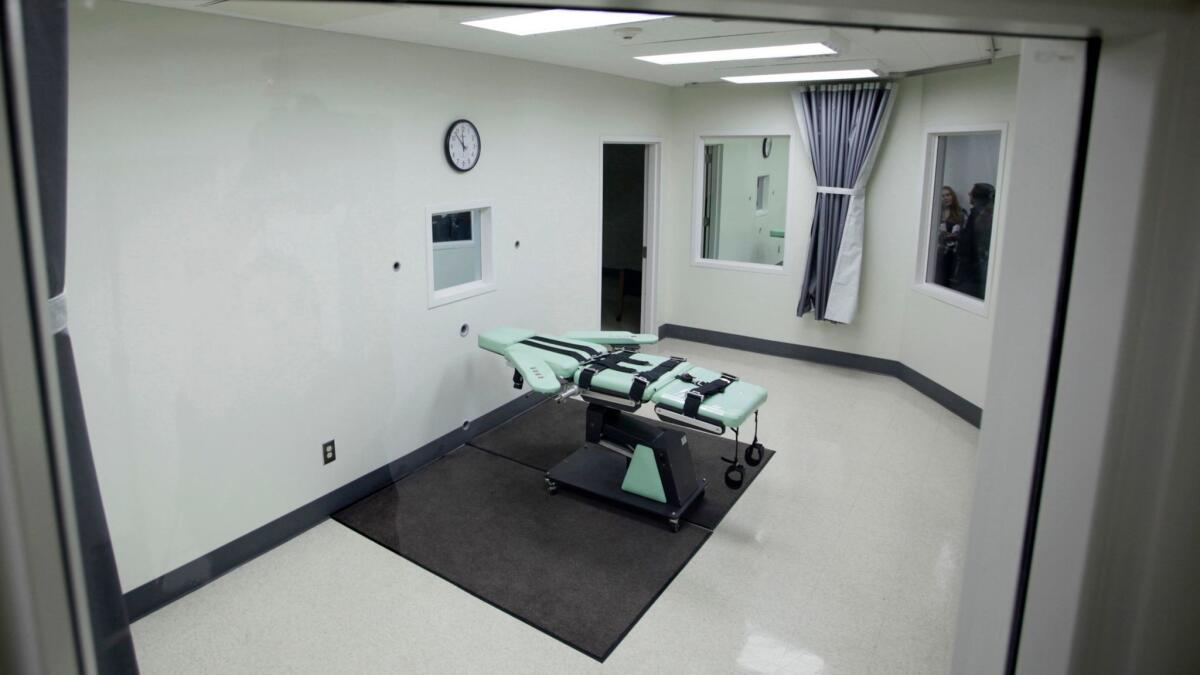Judge throws out lawsuit challenging California’s execution law

- Share via
Reporting from San Francisco — A judge has dismissed a lawsuit challenging the constitutionality of a state law that gives prison authorities responsibility for establishing procedures for lethal injection executions.
After voters passed a plan in November intended to speed up executions, the ACLU of Northern California challenged a state law that gave California’s corrections department wide authority to establish an execution protocol.
Another lawsuit to overturn the measure is still pending before the California Supreme Court.
The ACLU’s suit contended that a long-established law amended in the mid-1990s violated the state Constitution by allowing an agency — the California Department of Corrections and Rehabilitation — to decide how to carry out executions.
Alameda County Superior Court Judge Kimberly Colwell disagreed, saying the Legislature had acted within its authority.
“The CDCR is arguably the best institution to be tasked with monitoring the development of new injections and monitoring the pain, speed, and reliability of executions as they are carried out in other states,” Colwell wrote. State lawyers received a copy of the decision Monday.
If the challenge had been successful, the ACLU probably would have been able to delay the resumption of executions.
California has not executed an inmate since 2006. Courts struck down California’s previous three-drug lethal injection method, and Gov. Jerry Brown’s administration did not propose a new protocol until last year.
More than 700 prisoners are on California’s death row, the largest in the country, and about 16 have exhausted their appeals and could be executed.
The inmates facing imminent execution are older than 50 — one is approaching 80 — and were condemned for crimes that took place decades ago.
The ACLU’s suit said the Legislature, not a state agency, must set parameters for the kind of lethal injection procedure California adopts.
Lawmakers should be required to decide how much pain is acceptable during an execution, how long it should take for an inmate to die and the level of reliability of the execution process, the suit said.
Linda Lye, senior staff attorney for Northern California’s ACLU, said the group intends to appeal.
“On a matter as controversial and important as the death penalty, the Legislature needs to make fundamental policy decisions about how we conduct executions by lethal injection,” she said.
She noted that courts have struck down CDCR execution protocols several times in the past.
“It is clearly an agency that needs more guidance from the Legislature,” she said.
Twitter: @mauradolan
More to Read
Sign up for Essential California
The most important California stories and recommendations in your inbox every morning.
You may occasionally receive promotional content from the Los Angeles Times.














